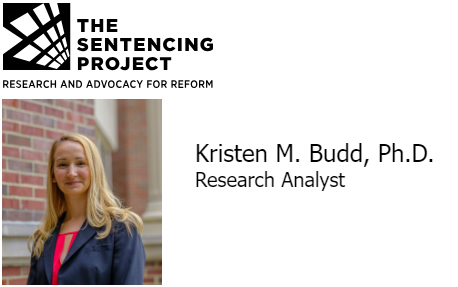Today, The Sentencing Project released a new research brief, “Responding to Crimes of a Sexual Nature: What We Really Want Is No More Victims,” examining misconceptions around crimes of a sexual nature (CSN) that contribute to the rise in imprisonment rates and the lengthening of sentences. The brief offers recommendations for reforming our responses to crimes in this category.
Sexual violence in America is a systemic social problem; but, government responses that favor excessive prison sentences fail to address the root causes of crimes of a sexual nature, nor do they repair harm. The misdirection of limited resources toward extreme punishments restricts resources that could go toward prevention.
According to the brief, policy changes enacted since the 1990s have subjected individuals convicted of CSN to not only increased use of incarceration but also longer sentences, disproportionately impacting people of color. While 70% of people arrested for rape and other sex offenses in 2020 were white, people of color were sentenced to prison at a rate that was two to three times higher than that of white individuals.
The brief highlights multiple findings about CSN:
- CSN recidivism rates are low.
- Many individuals convicted of CSN have experienced high levels of childhood trauma when compared to the general population.
- CSN occur mostly among people who know each other.
The report also provides a set of recommendations that hold individuals who commit CSN accountable, while advancing public safety, reflecting science-based research, and accounting for mitigating factors and an individual’s capacity for change. The suggestions include:
- Prioritizing investments in prevention and intervention programming that works to reduce CSN and treat the underlying causes of CSN. Relying on established evidence about CSN and those who commit it to inform policy responses rather than fear-driven misinformation.
- Sanctions should not be “one size fits all.” This category of crime includes a broad range of criminalized behavior such as consensual sex between youth to forcible rape. Each of these behaviors carries with it varying levels of criminal culpability and sentences should reflect that.
- Reform efforts to create a fairer criminal legal system should not exclude people convicted of CSN. CSN should not be carved out and should be afforded the same opportunities for sentencing relief as other offenses when lawmakers consider legislative reforms.
Read the report here: “Responding to Crimes of a Sexual Nature: What We Really Want Is No More Victims,”

